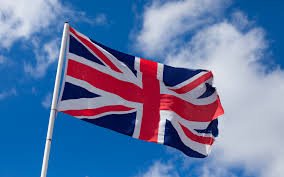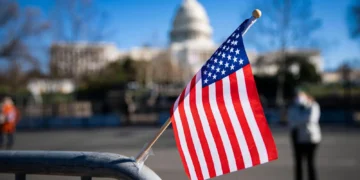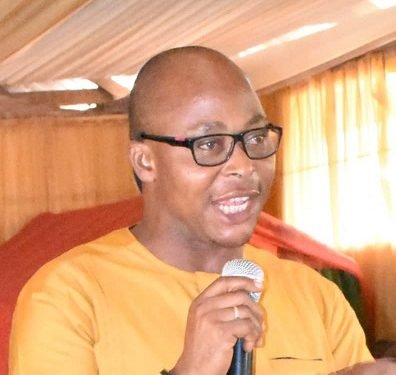Listening to facilitators of the Lagos Business School (LBS) webinar on ‘Risks African Businesses Are Facing from COVID-19’, one could not but examine some of the mind-bugling issues raised therein. The webinar was facilitated by a collection of experienced resource persons and industry experts.
It is imperative to first understand the global script of the coronavirus pandemic. As wildfire razes through forest bounds unchecked, so the virus glides from one country to the next across geographical regions of the globe. What began as a community disease in a Chinese town, Wuhan, has become a global generational menace depriving men and women their natural freedom of movement, association and the likes.
World economy has been brought almost to a standstill as nations lock up borders (mostly land and air), states lock up interstate borders and towns equally close up, thus making the term ‘lockdown’, one of the most used in recent times.
This affects governments, businesses, associations, religio-political activities, socio-cultural gatherings in no small measures. Families are reunited by the lockdown but most are almost exhausting the euphoria of the de facto camaraderie and reunion.
- Read also: Coronavirus Update – Nigeria records 195 new cases
- Are Nigerians On Their Own in This Onerous Undertaking?
The implications are that global trades can no longer go on as before. Domestic trades are at a halt. The capital market, that most times defies physical borders, is unpredictable as market instruments used to predict market trends remain unstable. Different nations, thus, have different shades of same stories.
Coming down to Nigeria, the effects are far reaching. Suffice to say that the country was not prepared for this ab initio. With our external reserves already depleted to about US$33b, the Naira collapsed against the Dollar as the CBN could no longer patch it. The Naira became ‘technically’ devalued ipso facto. Some of the implications for us as a country include the following.
Because foreign buyers are in same lockdown as the sellers, non-oil exports somewhat halted thereby reducing forex inflow into the country. Importation of goods is also halted on the same ambit. Oil exports which is the mainstream cash cow is a no-go area as prices of both WTI and Brent Crude are on all-time low.
Worse-case scenario is that the Naira may witness further devaluation because of increase in demand meeting low supply. Industry experts, like Bismarck Rewane, project that inflation may go up by 19%. The implications of these for businesses are quick reactions to cost. In a bid to contain cost, man power will be reduced (job losses) and if this happens, more masses would lose the ability to meet daily demands resulting in poor revenue inflow for businesses, low or no profits, and, most possibly, liquidation.
- Read further: Covid-19 – IMF approves $3.4 billion for Nigeria
- Naira Value Continues to Drop Against The Dollar in the Parallel Market
One of the worse hit in all these would be SMEs who would turn to the government and commercial banks for loans. Because banks would be struggling to remain afloat, they may not sustain low interest rates favourable to SMEs thereby knocking them off business.
The agribusiness value chain is one of the bright hopes for Nigeria post COVID-19 but it will be shaken. Its survival ability would largely depend on proactive policies by government NOW. Crop farming is seasonal and the lockdown is creating some gaps that might lead to food insecurity or even famine in the near future.
Farming generally is currently affected as we have information on farms that are burying dead birds due to lack of drugs and feed. One of the major bottlenecks in the Nigerian agribusiness sector is lack of storage facilities. The much we cannot consume domestically, we mostly waste.
Due to the lockdown, most hospitality businesses do not function to capacity thereby limiting the quantity of farm produce these farmers can distribute. Lockdown of foreign markets due to border closures have made export of farm produce a mere dream.
There are so many other implications emanating from the lockdown like lack of revenue to religious bodies and traditional institutions, travel and tours, and so on.
But, are there no hopes post pandemic? Is world economy going to witness a cataclysmic demise of the current order? Will capitalism survive this scourge? Would Nigeria emerge from the rubbles as one of global stakeholders for the new normal or would it still remain ‘developing’?
To remain a contending force striving towards relevance post lockdown, the government and private business owners need to agree that the development and progression of this economy is a collective task where there may be initial losses with future gains.
Government should provide such boosting incentives to SMEs, like anchor borrowers’ programme, via NIRSAL, BOI, BOA, NEXIM bank and also making these funds easily and urgently available to these businesses. To ensure that the targeted end is met, it should set up a monitoring supervision team of experts who ensure that these monies are put to intended use, more jobs created and developmental reports made and verified on monthly basis.
It is not a time to sit down and say we are disbursing funds. No, what are the funds actually doing? This is time for public private partnerships.
Government should liaise with parastatals to grant tax rebates and holidays in the interim; coax commercial and development banks to offer moratorium period to their debtors (some are already doing so); coax corporate Nigeria to bear some losses by not laying off staff massively; liaise with labour unions to accept temporary pay cuts; make other ports functional to decongest Tincan and Apapa wharfs thereby improving lead time for exporters and importers; liaise with market associations to control prices of goods bearing a win-win closure in mind.
This is the time the government is to be more proactive in implementation rather than propaganda. Nigerian businesses want to see it happening; they want to grow with the new normal.
The diversification initiative has no more viable period than now. Post pandemic, the ICT sector would boom; the health sector would boom; the agribusiness sector would flourish, but the government has a big role to play for these to materialize. How would upcoming entrepreneurs who want to key into these opportunities realize their ambitions bearing in mind that capital and know-how are usually the bottlenecks to startups?
On individual basis, what other opportunities are there for private investors? Is it the best time to invest in real estate and the stock market knowing there is the possibility of low prices? Is an investment in the food value chain not worth a thought? Are there no openings within the upstream, midstream and downstream agribusiness value chains to key into? Does investing in capacity building and self-development not worth the sit at home?
Many electronic platforms have made virtual conferencing, studies, and seminars some of the best hobbies to engage in while we await a permanent solution to this hydra-headed quagmire. ‘The new normal is the admission that the abnormal is the normal.’
Written by:
Edokobi, Azuka Stephen (+234 803 553 5948)
























































